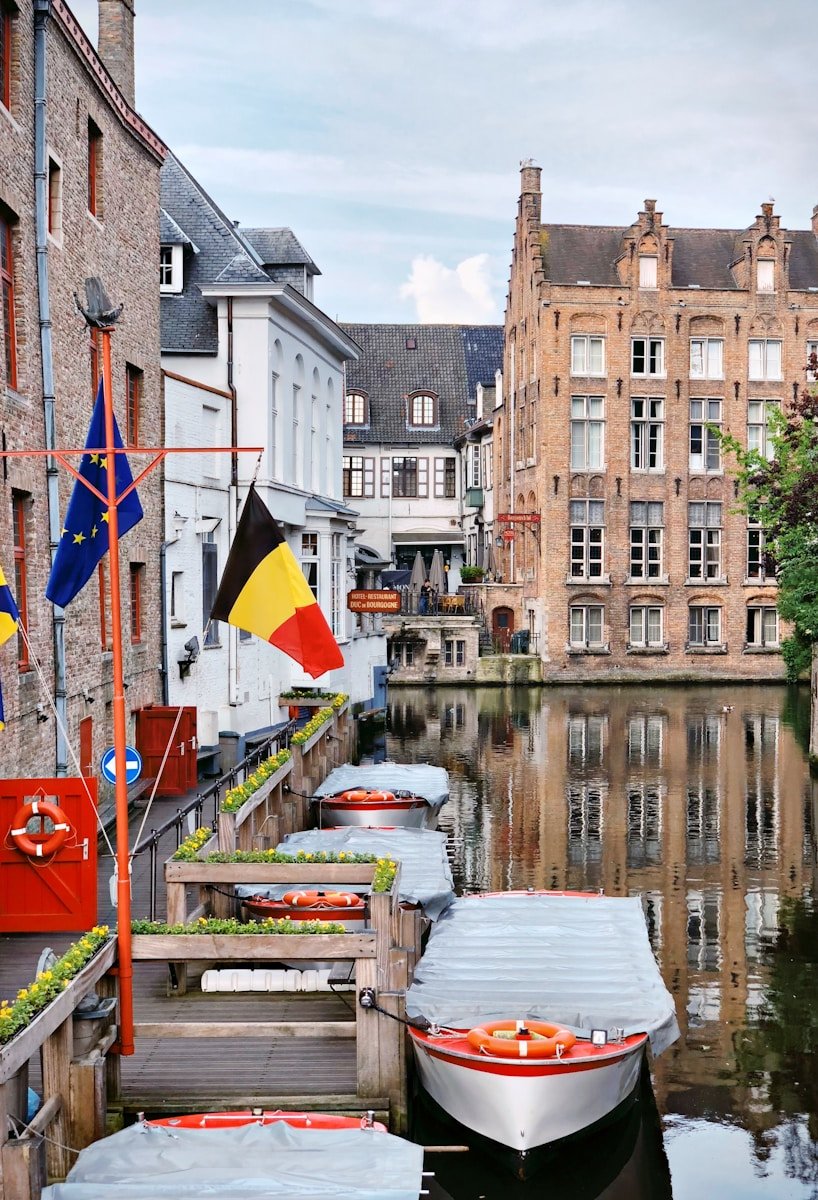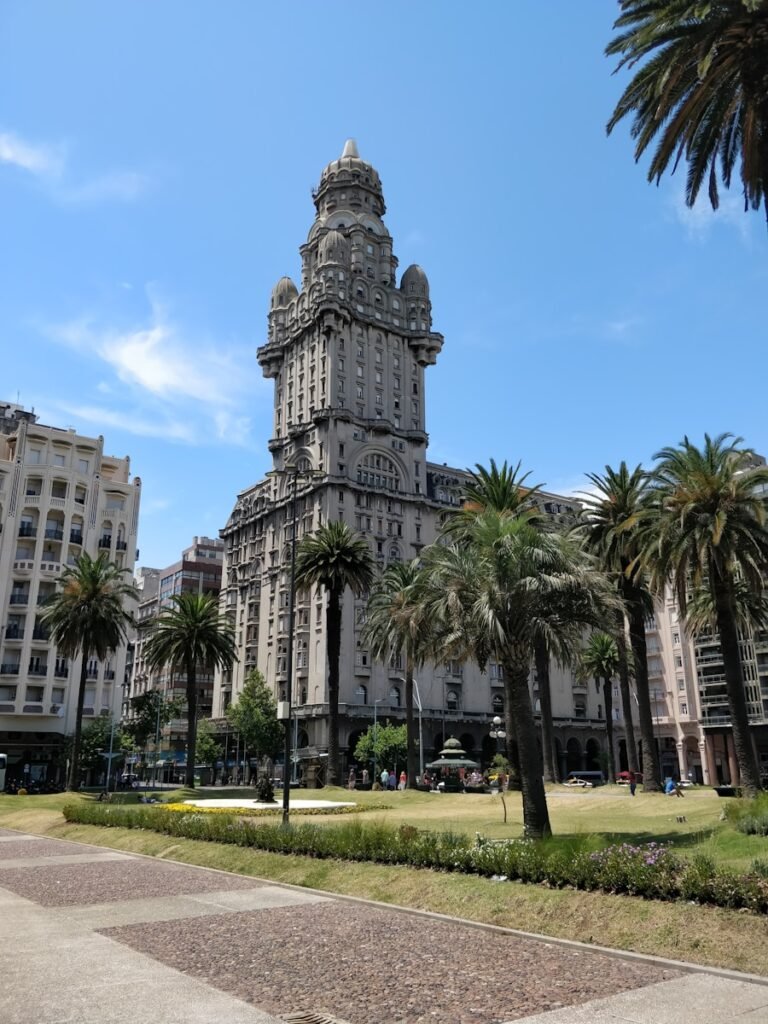How to Get the Belgium Digital Nomad Visa in 2025: A Complete Guide
Belgium is quickly becoming a top destination for digital nomads, thanks to its central location in Europe, high quality of life, and thriving expat community. But can remote workers get a Belgium Digital Nomad Visa? In this guide, I’ll walk you through the visa options, requirements, and how to make Belgium your next remote work hub.
Does Belgium Have a Digital Nomad Visa?
Belgium does not currently offer a dedicated digital nomad visa. Unlike countries such as Spain, Portugal, or Estonia, which have introduced specific visas for remote workers, Belgium has yet to implement a similar program. However, digital nomads and remote workers who wish to live and work from Belgium do have alternative visa options.
Best Visa Options for Digital Nomads in Belgium
While Belgium does not have a visa specifically designed for digital nomads, remote workers can consider the following alternatives:
- Professional Card (For Freelancers & Self-Employed Workers)
- This is a work authorization required for non-EU freelancers and self-employed individuals who want to work in Belgium.
- Applicants must demonstrate their business activities benefit the Belgian economy.
- The application process involves submitting a detailed business plan, proving financial stability, and paying a fee.
- This option is ideal for freelancers or entrepreneurs rather than salaried remote workers.
- Type D Visa (Long-Stay Visa for Non-EU Citizens)
- This visa allows non-EU nationals to stay in Belgium for more than 90 days.
- It is typically granted for work, study, or family reunification purposes.
- Remote workers must secure a residence permit and may need a work authorization depending on their employment type.
- This option is more complex than dedicated digital nomad visas in other countries, as Belgium has stricter work permit requirements.
How Do These Options Compare to Digital Nomad Visas in Other Countries?
Many European countries have introduced digital nomad visas that provide straightforward pathways for remote workers to stay legally. For example:
- Spain’s Digital Nomad Visa allows non-EU remote workers to live in Spain for up to five years with favorable tax conditions.
- Portugal’s D7 Visa is an excellent option for remote workers with passive income or self-employment earnings.
- Estonia’s Digital Nomad Visa grants a one-year stay for freelancers and remote workers employed by foreign companies.
Compared to these options, Belgium’s visa pathways for remote workers are less straightforward and may require additional steps, such as business registration or work permit applications.
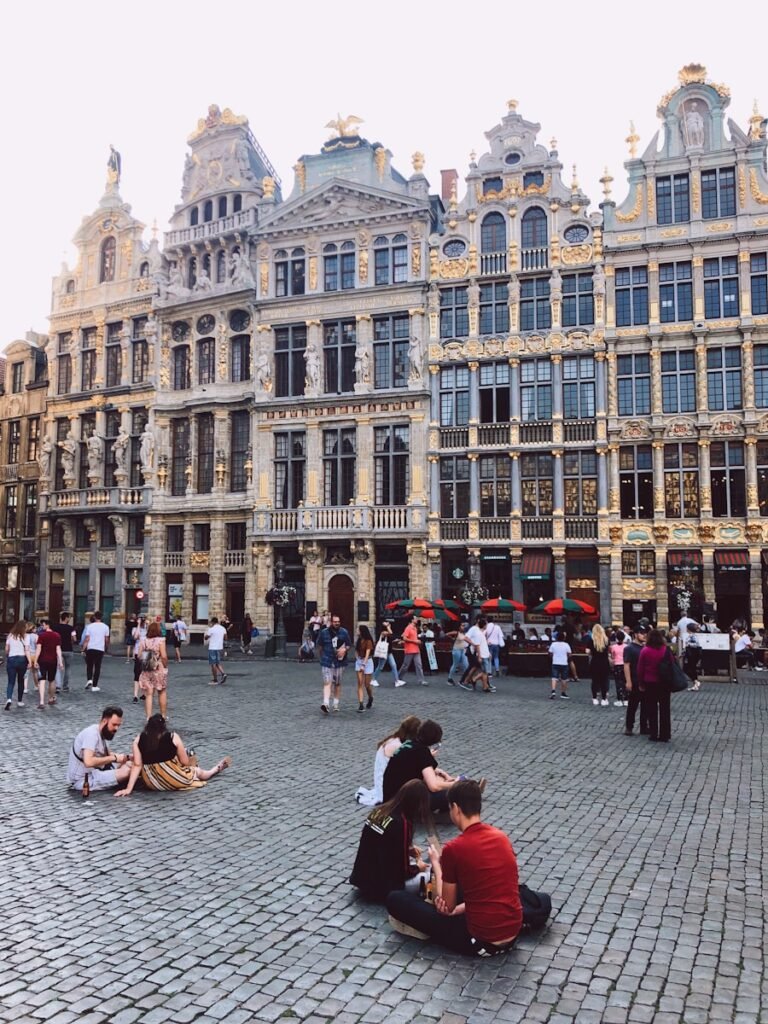
Belgium Digital Nomad Visa Alternatives
Belgium does not currently offer a dedicated digital nomad visa, but remote workers and freelancers still have options to legally live and work in the country. If you’re a digital nomad looking to stay in Belgium, you can consider these alternatives:
Thinking about Belgium? Don’t miss my article on the Netherlands Digital Nomad Visa for more low‑tax, high‑quality‑life options.
1. The Belgium Professional Card (Freelancer Visa)
This is the best option for self-employed individuals, freelancers, and entrepreneurs who want to work remotely from Belgium. The Professional Card acts as a work permit, allowing non-EU nationals to conduct business activities in Belgium.
Who Qualifies?
- Non-EU/EEA nationals who are self-employed or freelance workers.
- Individuals who can prove their work benefits the Belgian economy.
- Entrepreneurs looking to establish a business in Belgium.
Requirements
To apply for a Professional Card, applicants must provide:
✅ A detailed business plan outlining the nature of their work and potential impact.
✅ Financial proof, showing they have sufficient funds to support themselves.
✅ Proof of professional qualifications or experience in their industry.
✅ Registration with the Crossroads Bank for Enterprises (BCE/KBO)—Belgium’s business registry.
Application Process & Costs
- Submit an application through a Belgian consulate in your home country or directly in Belgium (if already residing there on another visa).
- The authorities review the business plan and financial viability.
- If approved, you receive the Professional Card, which is valid for 1 to 5 years.
- The cost varies, but it generally ranges from €140 to €350 for processing fees.
This visa is not ideal for salaried remote workers since it requires self-employment status.
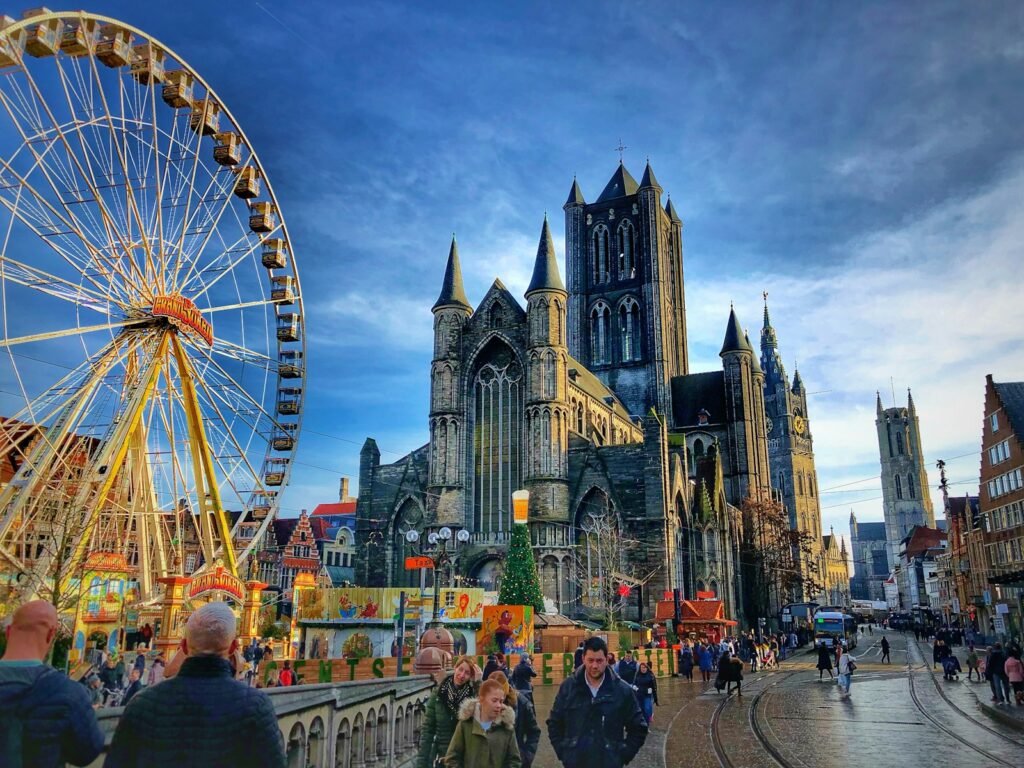
2. Type D Visa (Long-Stay Visa for Remote Workers)
The Type D Visa is a long-term residence visa that allows non-EU nationals to stay in Belgium for more than 90 days. While it is not a dedicated digital nomad visa, remote workers can use it if they meet certain conditions.
Who Qualifies?
- Non-EU nationals with an employment contract from a company outside Belgium.
- Individuals working remotely for a foreign company without engaging in Belgian economic activities.
- People who meet Belgium’s residency and financial requirements.
Key Benefits
✅ Grants residence in Belgium for over 90 days.
✅ Allows for renewal and potential long-term stay.
✅ Possible pathway to obtaining a Belgian residency permit.
Application Steps & Required Documents
- Gather necessary documents, including:
- A valid passport (with at least 12 months validity).
- Proof of employment with a company outside Belgium.
- Health insurance coverage for the duration of your stay.
- Proof of sufficient income to support yourself.
- Accommodation proof (such as a rental contract in Belgium).
- Apply for the Type D Visa at the Belgian embassy or consulate in your home country.
- If approved, you must register with the local municipality upon arrival in Belgium.
While this visa allows digital nomads to stay in Belgium long-term, it does not grant official work authorization within the country. Therefore, it is best suited for remote employees working for foreign companies.
3. Schengen Visa for Short-Term Stays
For digital nomads planning to stay in Belgium for fewer than 90 days, the Schengen Visa is an option. This visa allows non-EU nationals to travel and work remotely within the Schengen Zone, which includes Belgium.
Who Qualifies?
- Non-EU nationals who do not require a long-term visa.
- Digital nomads who only need a temporary stay in Belgium.
- Individuals with sufficient financial means to support their stay.
Key Limitations
❌ Maximum stay of 90 days within a 180-day period.
❌ Does not allow long-term residence or access to Belgian residency benefits.
❌ Can be restrictive for digital nomads who need a more stable base in Belgium.
Why It’s Not Ideal for Long-Term Remote Work
The Schengen Visa is useful for short-term travel, but it is not a proper digital nomad visa. If you plan to stay in Belgium for more than 90 days, you should consider the Professional Card or Type D Visa instead.
Which Option Is Best for Digital Nomads?
| Visa Option | Best For | Validity | Key Limitation |
|---|---|---|---|
| Professional Card (Freelancer Visa) | Freelancers & self-employed workers | 1-5 years | Requires business registration & economic contribution |
| Type D Visa (Long-Stay Visa) | Remote employees working for a foreign company | Over 90 days | No official work authorization in Belgium |
| Schengen Visa | Short-term digital nomads | Up to 90 days | No long-term stay allowed |
If you are a freelancer or self-employed worker, the Professional Card is your best bet.
If you are a remote employee with a foreign company, the Type D Visa is a better fit.
Since Belgium does not have an official digital nomad visa yet, these alternatives require extra steps and paperwork compared to digital nomad visas in Spain, Portugal, or Estonia.
Step-by-Step Guide to Applying for a Belgium Remote Work Visa
Belgium does not offer a specific digital nomad visa, but remote workers and freelancers can apply for alternative visas, such as the Professional Card (Freelancer Visa) or the Type D Visa (Long-Stay Visa). This guide outlines the step-by-step process for securing a remote work visa and legally residing in Belgium.
Step 1: Choose the Right Visa Based on Your Situation
Before applying, you need to determine which visa category best suits your circumstances. Here’s how to decide:
- If you are a freelancer or self-employed, the best option is the Professional Card (Freelancer Visa). This allows you to run your own business or work as an independent contractor in Belgium.
- If you are a remote employee working for a foreign company, the Type D Visa (Long-Stay Visa) is the most suitable choice. This visa permits long-term residence but does not grant work authorization within Belgium.
- If you are staying in Belgium for fewer than 90 days, you can enter on a Schengen Visa, though this does not provide work rights or long-term residency.
Once you decide on the right visa, you can start preparing your application.
Step 2: Gather Required Documents
Regardless of the visa type, you will need to compile essential documents. Here’s a list of what is typically required:
For the Professional Card (Freelancer Visa)
✅ Valid passport (must be valid for at least 12 months).
✅ Detailed business plan outlining your work and its economic benefits to Belgium.
✅ Proof of financial stability, such as bank statements or income records.
✅ Professional qualifications or experience in your field.
✅ Registration with the Crossroads Bank for Enterprises (BCE/KBO)—Belgium’s business registry.
✅ Health insurance coverage for your stay in Belgium.
For the Type D Visa (Long-Stay Visa for Remote Workers)
✅ Valid passport with at least 12 months of validity.
✅ Proof of employment with a company based outside Belgium.
✅ Proof of sufficient income (salary slips, contracts, or tax returns).
✅ Health insurance that covers your stay in Belgium.
✅ Proof of accommodation (rental contract or hotel booking).
✅ Criminal record check from your home country.
For the Schengen Visa (Short-Term Stay)
✅ Passport valid for at least 3 months beyond your departure date.
✅ Proof of financial means (bank statements or sponsorship letter).
✅ Travel itinerary and accommodation details.
✅ Health insurance policy covering at least €30,000 in medical expenses.
Tip: Make sure all documents are translated into Dutch, French, or German (Belgium’s official languages) if required.
Step 3: Submit Your Application at the Belgian Consulate or Embassy
Once you have all the required documents, the next step is to submit your visa application.
Where to Apply?
You must apply at the Belgian embassy or consulate in your home country before traveling to Belgium. Find the nearest embassy here.
Application Process
- Schedule an appointment at the Belgian embassy or consulate.
- Fill out the visa application form (available on the embassy’s website).
- Submit all required documents in person.
- Pay the visa application fee (varies depending on visa type and nationality).
- Attend an interview (if required), where you may be asked about your work and financial situation.
Visa Fees
- Professional Card (Freelancer Visa): Application fees range from €140 to €350.
- Type D Visa (Long-Stay Visa): Fees vary from €180 to €350.
- Schengen Visa: Typically costs €80 for adults.
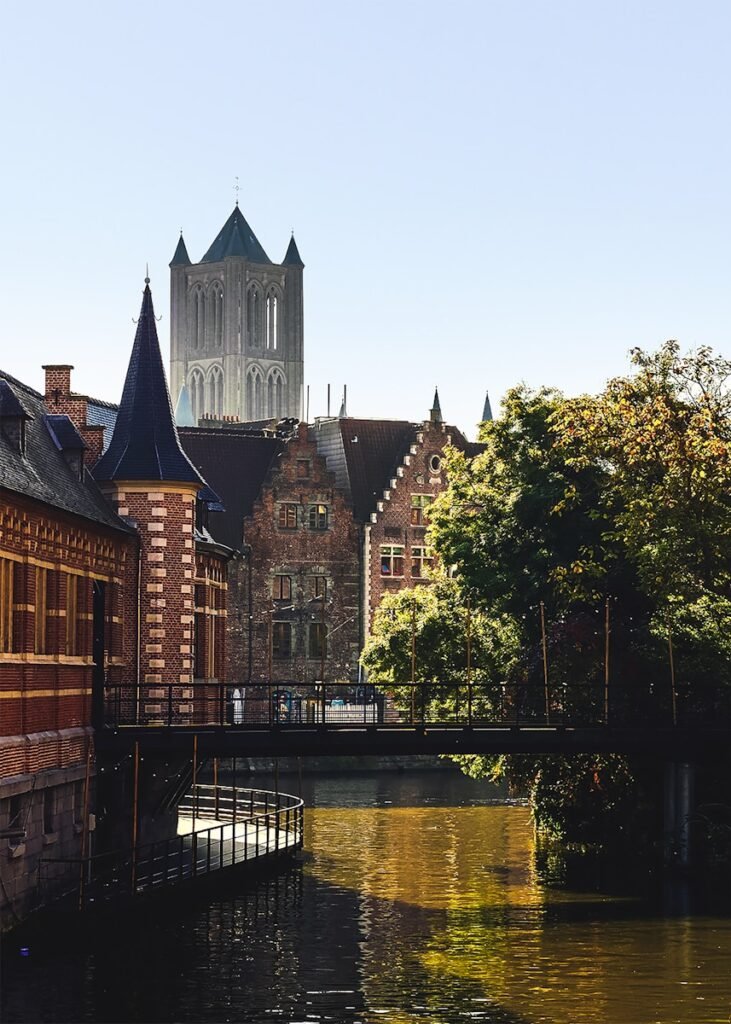
Step 4: Wait for Processing (Approval Time & Success Rate)
After submitting your application, you will need to wait for it to be processed. The waiting time depends on your visa type and nationality.
Processing Times
⏳ Professional Card (Freelancer Visa): 2-6 months.
⏳ Type D Visa (Long-Stay Visa): 6-12 weeks.
⏳ Schengen Visa: 15-30 days.
Approval Rates & Common Reasons for Rejection
Most applications are approved if you submit complete documentation and meet the eligibility criteria. However, applications may be rejected for reasons such as:
❌ Insufficient financial proof.
❌ Incomplete or poorly prepared business plan.
❌ Lack of valid health insurance.
❌ Criminal record or security concerns.
If your application is rejected, you may have the option to appeal the decision or submit a new application with additional documentation.
Step 5: Move to Belgium & Register Your Residence
Once your visa is approved, you can relocate to Belgium and complete the final steps to secure your residency.
Arrival Checklist
🛬 Enter Belgium within the visa validity period.
🏠 Find long-term accommodation if you haven’t already.
🏛 Register with the local municipality (within 8 days of arrival).
💳 Apply for a residence permit (if required for your visa type).
🏥 Set up health insurance coverage under Belgium’s healthcare system.
Municipal Registration
Within 8 days of arrival, you must register your residence at the local commune (municipality). You will need:
- Your passport and visa approval letter.
- Proof of address (rental agreement or property ownership papers).
- Proof of financial stability (income statements or tax returns).
The registration process may take several weeks, and you will receive a residence permit if required.
Cost of Living & Taxes for Digital Nomads in Belgium
Belgium is an attractive destination for digital nomads and remote workers due to its high quality of life, central European location, and excellent infrastructure. However, the cost of living can be relatively high, and tax obligations can be complex.
This guide will break down:
- Housing costs in major cities like Brussels, Antwerp, and Ghent.
- Everyday expenses like food, transportation, and healthcare.
- Tax residency rules and whether digital nomads need to pay Belgian taxes.
Housing Costs: Renting in Belgium as a Digital Nomad
The cost of housing varies depending on the city and whether you choose to live in the city center or the suburbs.
Average Monthly Rent in Major Belgian Cities
| City | 1-Bedroom Apartment (City Center) | 1-Bedroom Apartment (Suburbs) |
|---|---|---|
| Brussels | €1,100 – €1,500 | €800 – €1,200 |
| Antwerp | €900 – €1,300 | €700 – €1,000 |
| Ghent | €850 – €1,200 | €650 – €950 |
| Leuven | €750 – €1,100 | €600 – €900 |
| Bruges | €800 – €1,200 | €600 – €900 |
💡 Pro Tip: Renting a furnished apartment or co-living space can be a good option for short-term stays. Websites like Spotahome, HousingAnywhere, and Airbnb are great places to start looking.
Additional Housing Costs
Besides rent, digital nomads should budget for the following:
✅ Utilities (electricity, water, gas, internet): €150 – €250 per month.
✅ Apartment deposits: Typically 1-3 months’ rent as a security deposit.
✅ Municipal taxes: Some cities charge small local taxes to residents.
Living Costs: Food, Transportation & Healthcare
Belgium has a high but manageable cost of living. Your budget will depend on your lifestyle, but here’s an overview of typical monthly expenses:
Food & Dining Costs
| Expense | Average Cost |
|---|---|
| Groceries (per month, per person) | €250 – €400 |
| Meal at an inexpensive restaurant | €15 – €20 |
| Three-course meal for two at a mid-range restaurant | €60 – €90 |
| Coffee at a café | €3 – €4 |
| Beer at a bar | €4 – €6 |
💡 Pro Tip: Shopping at local markets and discount supermarkets like Colruyt, Aldi, and Lidl can help you save on groceries.
Transportation Costs
Belgium has a well-connected public transport system with buses, trams, and trains. Many digital nomads use public transport rather than owning a car due to the high cost of fuel, parking, and insurance.
| Expense | Cost |
|---|---|
| Public transport pass (monthly) | €49 – €60 |
| Single metro, tram, or bus ticket | €2.50 |
| Taxi (per km) | €2 – €3 |
| Fuel (per liter of gasoline) | €1.60 – €1.80 |
💡 Pro Tip: Belgium’s train system makes it easy to travel to France, the Netherlands, Germany, and Luxembourg, making it a great base for exploring Europe.
Healthcare Costs
Belgium has a high-quality healthcare system, and digital nomads must ensure they have adequate coverage.
| Expense | Cost |
|---|---|
| Private health insurance (monthly) | €50 – €150 |
| Doctor’s consultation (without insurance) | €25 – €50 |
| Emergency visit (without insurance) | €100 – €200 |
| Prescription medication (basic antibiotics, painkillers, etc.) | €5 – €20 |
💡 Pro Tip: If you’re staying in Belgium long-term, you may need to enroll in Belgium’s public health insurance system, which requires contributions through a mutuelle (health insurance fund).
Taxes in Belgium: Do Digital Nomads Need to Pay?
Understanding Belgian Tax Residency Rules
Whether or not you need to pay taxes in Belgium depends on your tax residency status.
You are considered a Belgian tax resident if:
✅ You live in Belgium for more than 183 days (6 months) per year.
✅ Your main economic interests (e.g., business, clients, or employer) are in Belgium.
✅ You are registered as a resident with the local municipality.
If you meet any of these conditions, you must pay Belgian income tax on your worldwide income.
If you stay in Belgium for less than 183 days per year, you are considered a non-resident and generally do not need to pay Belgian taxes—unless you earn income from Belgian sources.
Income Tax Rates in Belgium
Belgium has high income tax rates, which can be a concern for digital nomads who become tax residents.
| Annual Income | Tax Rate |
|---|---|
| Up to €15,200 | 25% |
| €15,201 – €26,830 | 40% |
| €26,831 – €46,440 | 45% |
| Over €46,440 | 50% |
💡 Example: If you earn €50,000 per year, you would pay:
- 25% on the first €15,200
- 40% on €15,201 – €26,830
- 45% on €26,831 – €46,440
- 50% on any amount above €46,440
Belgium also has social security contributions (around 13.07% for employees and 20.5% – 22% for self-employed workers).
Tax Benefits & Avoiding Double Taxation
Belgium has double taxation treaties with many countries, meaning you may avoid paying taxes twice on the same income. If your home country has a tax treaty with Belgium, you can claim tax credits or exemptions.
💡 Pro Tip: Consider consulting a tax professional who specializes in expat and digital nomad taxes to understand your obligations.
Best Cities in Belgium for Digital Nomads
Belgium offers a mix of modern cities, historic charm, and strong infrastructure, making it a great place for digital nomads. While the country doesn’t have an official digital nomad visa, remote workers can still live and work here through freelancer or long-stay visas.
If you’re considering Belgium as your next destination, here’s a detailed guide to the best cities for digital nomads, including cost of living, coworking spaces, internet speed, lifestyle, and networking opportunities.
1. Brussels – The International Hub for Digital Nomads
Why Choose Brussels?
✅ Multicultural and international city with people from all over the world.
✅ Excellent public transport with easy connections across Belgium and Europe.
✅ Fast internet (150+ Mbps on average) and plenty of coworking spaces.
✅ Strong networking opportunities with EU institutions, businesses, and startups.
Cost of Living in Brussels
| Expense | Estimated Cost |
|---|---|
| 1-bedroom apartment (city center) | €1,100 – €1,500 |
| Coworking space (per month) | €150 – €300 |
| Public transport (monthly pass) | €50 – €60 |
| Meal at a mid-range restaurant | €20 – €30 |
| Coffee at a café | €3 – €4 |
Best Coworking Spaces in Brussels
🏢 Factory Forty – Popular among freelancers and startups.
🏢 Silversquare Louise – Stylish coworking with great networking events.
🏢 Betacowork – One of the oldest and most established coworking spaces.
💡 Pro Tip: Brussels is a great option for digital nomads who enjoy a fast-paced, international lifestyle. However, it’s one of the most expensive cities in Belgium, so budget accordingly.
2. Antwerp – Creative & Affordable City for Digital Nomads
Why Choose Antwerp?
✅ Lower rent compared to Brussels but still a big city with great amenities.
✅ Strong creative and design scene with many freelancers and artists.
✅ Lively nightlife and café culture, perfect for social digital nomads.
✅ Good English proficiency, making it easy for foreigners to integrate.
Cost of Living in Antwerp
| Expense | Estimated Cost |
|---|---|
| 1-bedroom apartment (city center) | €900 – €1,300 |
| Coworking space (per month) | €100 – €250 |
| Public transport (monthly pass) | €50 |
| Meal at a mid-range restaurant | €15 – €25 |
| Coffee at a café | €2.50 – €3.50 |
Best Coworking Spaces in Antwerp
🏢 StartBloc Antwerp – Affordable coworking with a relaxed atmosphere.
🏢 The Beacon – Ideal for tech startups and remote entrepreneurs.
🏢 Stokers – A cool, industrial-style coworking space with a great vibe.
💡 Pro Tip: Antwerp is perfect if you want an affordable yet vibrant city with plenty of creative energy and networking opportunities.
3. Ghent – Belgium’s Tech & Startup Hub
Why Choose Ghent?
✅ One of the most digital-friendly cities in Belgium with a strong startup scene.
✅ Laid-back but lively city with a high number of expats and remote workers.
✅ More affordable than Brussels, but still well-connected by train.
✅ Fast internet speeds (150+ Mbps average), ideal for remote work.
Cost of Living in Ghent
| Expense | Estimated Cost |
|---|---|
| 1-bedroom apartment (city center) | €850 – €1,200 |
| Coworking space (per month) | €120 – €250 |
| Public transport (monthly pass) | €50 |
| Meal at a mid-range restaurant | €15 – €25 |
| Coffee at a café | €2.50 – €3.50 |
Best Coworking Spaces in Ghent
🏢 De Punt – Great for startups and tech entrepreneurs.
🏢 Co-Station Gent – Popular among digital nomads and freelancers.
🏢 Ghent Factory – Creative coworking space in a trendy part of town.
💡 Pro Tip: Ghent is great for tech-savvy nomads looking for a work-friendly city with a good balance of affordability and networking.
4. Bruges – A Fairytale City for a Relaxed Digital Nomad Life
Why Choose Bruges?
✅ Breathtaking medieval architecture and UNESCO-listed old town.
✅ Slower pace of life, ideal for deep work and creative inspiration.
✅ Good for writers, artists, and solo entrepreneurs who don’t need a big city.
✅ Short train ride to Brussels (1 hour) for occasional networking events.
Cost of Living in Bruges
| Expense | Estimated Cost |
|---|---|
| 1-bedroom apartment (city center) | €800 – €1,200 |
| Coworking space (per month) | €100 – €200 |
| Public transport (monthly pass) | €50 |
| Meal at a mid-range restaurant | €20 – €30 |
| Coffee at a café | €3 – €4 |
Best Coworking Spaces in Bruges
🏢 The Coworking Bruges – Small but welcoming coworking community.
🏢 Oh’Green Workspaces – Quiet and great for focused work.
💡 Pro Tip: Bruges is perfect if you prefer a peaceful, storybook-like atmosphere and don’t mind a quieter social scene compared to bigger cities.
Which Belgian City is Best for You?
| City | Best For | Cost of Living |
|---|---|---|
| Brussels | Networking, international businesses, startups | ⭐⭐⭐⭐ |
| Antwerp | Creative professionals, designers, affordable rent | ⭐⭐⭐ |
| Ghent | Tech entrepreneurs, freelancers, relaxed but lively | ⭐⭐⭐ |
| Bruges | Writers, artists, peace & quiet, historic charm | ⭐⭐ |
💡 Final Thoughts:
- Brussels is best if you want an international hub with strong networking.
- Antwerp is great for a creative, design-focused lifestyle.
- Ghent is ideal for tech-savvy digital nomads and startup enthusiasts.
- Bruges is perfect for those who value peace, beauty, and inspiration.
Pros & Cons of Being a Digital Nomad in Belgium
1. Central Location in Europe
Belgium’s location at the heart of Europe makes it an ideal base for travel. Whether you’re looking to explore neighboring countries like France, Germany, or the Netherlands, or you want to visit cities further afield, Belgium’s excellent train and flight connections give you easy access to the rest of the continent.
- Trains: Fast trains connect Belgium with cities like Paris, Amsterdam, and London in under 2 hours.
- Flights: Brussels Airport is an international hub, making air travel convenient and often affordable.
2. High Quality of Life & Strong Public Services
Belgium is known for its high standard of living, with excellent healthcare, education, and infrastructure. The country’s public transport system is reliable, and the overall quality of life is high, thanks to the country’s well-developed social systems.
- Healthcare: Belgium has one of the best healthcare systems in Europe, offering affordable access to doctors, specialists, and treatment.
- Public Services: Belgium is famous for its public services, such as waste management, green spaces, and clean streets.

3. Large Expat & Digital Nomad Community
Belgium is home to a sizable expat community, particularly in cities like Brussels, Antwerp, and Ghent. With its international workforce, there’s a growing digital nomad scene, and many coworking spaces and networking events catered to remote workers.
- Coworking spaces are common in major cities, and meetups or digital nomad groups are easy to find for both personal and professional connections.
- English is widely spoken, and many Belgians are fluent in other languages, making it easy to settle in without having to learn a new language right away.
4. Rich History, Culture & Food
Belgium is known for its rich history, charming architecture, and a vibrant cultural scene. Whether you’re exploring the medieval streets of Bruges or enjoying world-class art and architecture in Brussels, there’s something for everyone. Additionally, Belgium’s food scene is renowned, especially its chocolates, waffles, and beer.
- Culture & Festivals: Belgium hosts several art festivals, music festivals, and international events throughout the year.
- Cuisine: Belgian cuisine is a treat for food lovers, offering everything from hearty mussels and fries to indulgent chocolate and pastries.
❌ Cons of Being a Digital Nomad in Belgium
1. High Taxes
Belgium has some of the highest income taxes in Europe. While the quality of public services is excellent, digital nomads need to be aware that they’ll be subject to relatively high taxes on their income.
- Income Tax Rates: Belgium has a progressive income tax system, with tax rates ranging from 25% to 50% depending on your income bracket.
- Social Security Contributions: Freelancers and self-employed individuals also have to pay into the country’s social security system, which can further increase the tax burden.
2. High Cost of Living
While Belgium offers a high standard of living, it can be expensive, particularly in cities like Brussels and Antwerp. The cost of accommodation, dining out, and daily essentials is often higher than in other European countries, especially for those on a nomadic budget.
- Housing: Rent in the city centers of Brussels and Antwerp can be expensive, with one-bedroom apartments in the city center averaging between €900 and €1,500 per month.
- Daily Costs: Meals, coffee, public transport, and other living expenses can add up quickly, making Belgium a less affordable option for some remote workers.
3. Complex Visa Process for Remote Workers
While there are visa options available for digital nomads in Belgium, such as the Professional Card (Freelancer Visa) and Type D Visa (Long-Stay Visa), the process can be complicated and time-consuming.
- Professional Card: Freelancers need to prove their financial stability and submit a business plan. Additionally, they must register with the Crossroads Bank for Enterprises before they can legally operate in Belgium.
- Type D Visa: Remote workers with an employment contract from outside Belgium must apply for a long-stay visa, which requires multiple documents, including proof of employment and financial support. The application process can be lengthy and requires substantial paperwork.
4. Weather Can Be Rainy and Cold
Belgium’s weather can be a significant downside for some digital nomads. While the country enjoys moderate temperatures, it tends to be rainy and cloudy for much of the year. The winter months can be particularly challenging, with long, grey days and cooler temperatures.
- Rainy Season: Belgium experiences significant rainfall throughout the year, especially in the fall and winter months.
- Cold Winters: Temperatures can drop to freezing levels in winter, and there’s often little sunlight, which can be difficult for those who thrive in sunny, warmer climates.
Conclusion: Is Belgium Right for You as a Digital Nomad?
Belgium may not offer a dedicated digital nomad visa, but it still provides attractive options for remote workers and freelancers who want to base themselves here. With its rich cultural heritage, modern infrastructure, and strategic central location in Europe, Belgium stands out as a solid destination for those looking to balance work with a high quality of life.
Key Reasons to Choose Belgium
- Cultural and Historical Appeal: Belgium is home to some of the most beautiful and historic cities in Europe. From the medieval charm of Bruges to the cosmopolitan feel of Brussels, there is something for everyone. The country’s art, architecture, and gastronomy make it an exciting place to explore during your downtime.
- Accessibility: Being centrally located in Europe, Belgium offers unmatched travel opportunities. Whether you want to pop over to Paris, Amsterdam, or Berlin, Belgium is perfectly positioned for easy access to neighboring countries. The international airports, fast trains, and excellent road network make traveling convenient and inexpensive.
- Strong Public Services: Belgium’s high standard of living is complemented by outstanding healthcare, reliable public transportation, and robust social services, which many expats and digital nomads highly appreciate.
- Thriving Digital Nomad Community: Cities like Brussels, Antwerp, and Ghent have vibrant expat communities and ample coworking spaces. With the rise of remote work, more spaces are tailored specifically for digital nomads, and there are plenty of opportunities to network, collaborate, and socialize.
Challenges to Consider
However, Belgium is not without its challenges. One major obstacle is the complex visa process, which can be quite daunting for remote workers and freelancers, especially when compared to other countries with more streamlined visa options. Navigating the requirements for the Professional Card or Type D Visa can take time, and it’s essential to ensure that all your documents are in order to avoid delays.
Additionally, Belgium’s high cost of living and tax rates might be off-putting for those on a tighter budget or who are used to cheaper destinations for remote work. While Brussels and Antwerp are bustling hubs with plenty of opportunities, housing prices and daily expenses can quickly add up. Moreover, Belgium’s often rainy and grey weather might not suit everyone, particularly those who crave sunshine and warmer climates year-round.
Final Thoughts
In conclusion, Belgium could be the perfect destination for you as a digital nomad if you value central European location, a high standard of living, and a culturally rich environment. However, it’s crucial to weigh the complex visa process, tax implications, and cost of living before making the move. If you’re up for the challenge, start by thoroughly researching your visa options and preparing your application.
Belgium offers a unique blend of opportunity and challenge for remote workers and digital nomads, and for those who are ready to navigate the paperwork, it could be an incredibly rewarding place to call home.

